Categories:
- Income
Status:
Start Date:
Cost:
Increase family income through business development
Bring entrepreneurship skills to Ayalagaya and Arri
There is no lack of motivation among the people in the communities we support. There is a very entrepreneurial spirit. Most families survive on subsistence farming and livestock, but there are lively monthly markets for commerce. Unfortunately, many small businesses fail as entrepreneurs and farmers have little to no understanding of business skills: cost structure, cash flow needs, market opportunities or saturations, competitive analysis, customer retention, etc. Karimu wants to bring these skills to our rural communities, not only for existing business people, but also for young adults who will not have the opportunity to pursue an advanced education.
Karimu has found a partner in Street Business School (SBS) who is also aligned with our mission of ending poverty. They specialize in entrepreneurship training for small businesses in rural areas. Originating with paper bead businesses in Uganda, they have now focused on entrepreneurship training and expanded their reach world-wide through a network of partners who deploy their curriculum. Their results are very impressive: 80% of graduates from their 6 month program have at least 1 business 1 year after graduation and graduates have more than doubled their income after 1 year! Karimu plans to bring this training and its results to Ayalagaya and Arri wards.
Karimu sent two staff to Uganda in November to become Certified Lead Coaches in the Street Business School curriculum. We will begin training in May 2022.
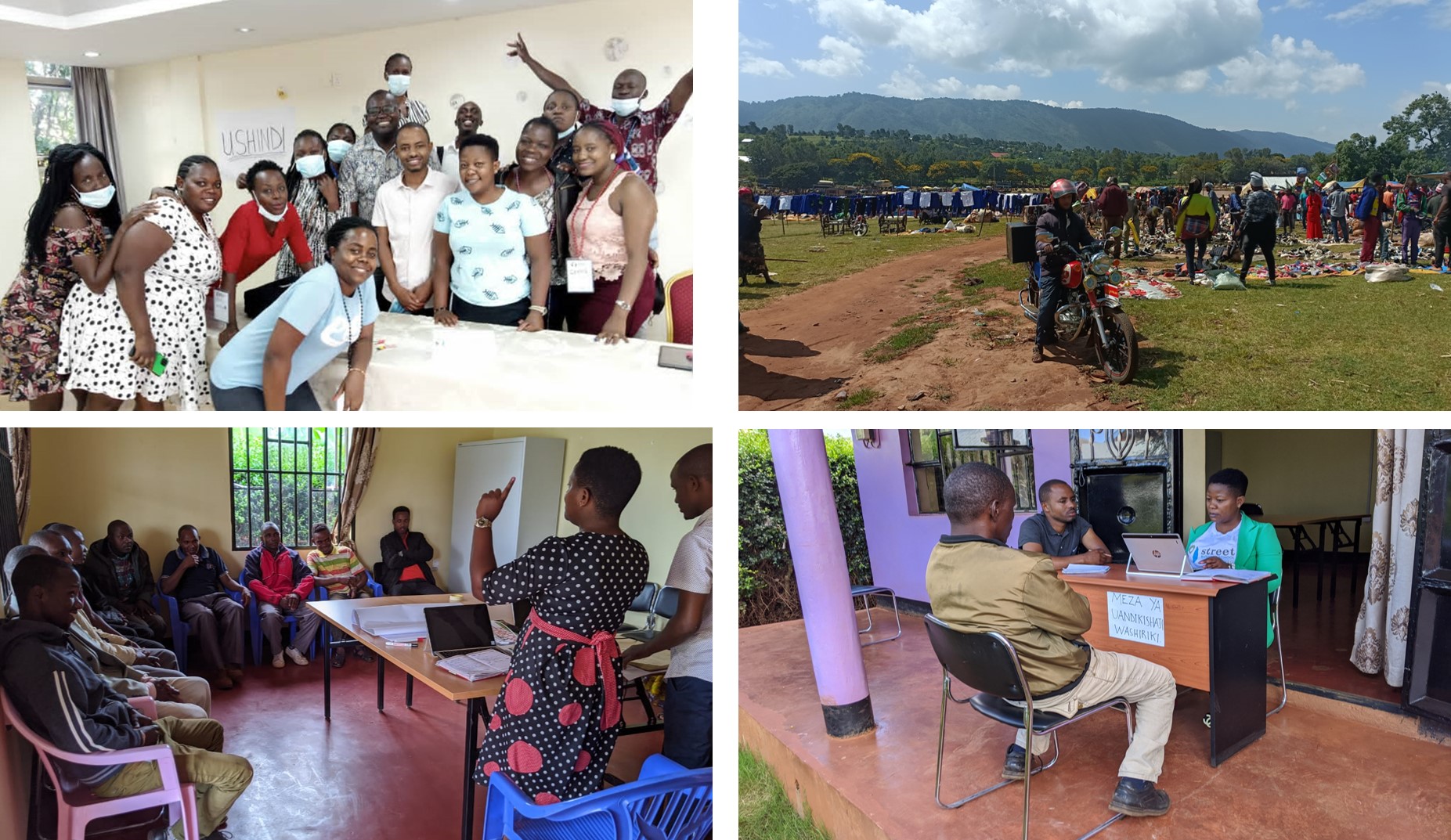
May 2022 update: We have selected the 1st class of 30 participants. They are a diverse group including 1/3rd women, 1/3rd young adult (under 35), and 1/3rd having no existing business. The course kicked off in April with baseline coaching visits to understand their current situation and aspirations and the first training began in May.
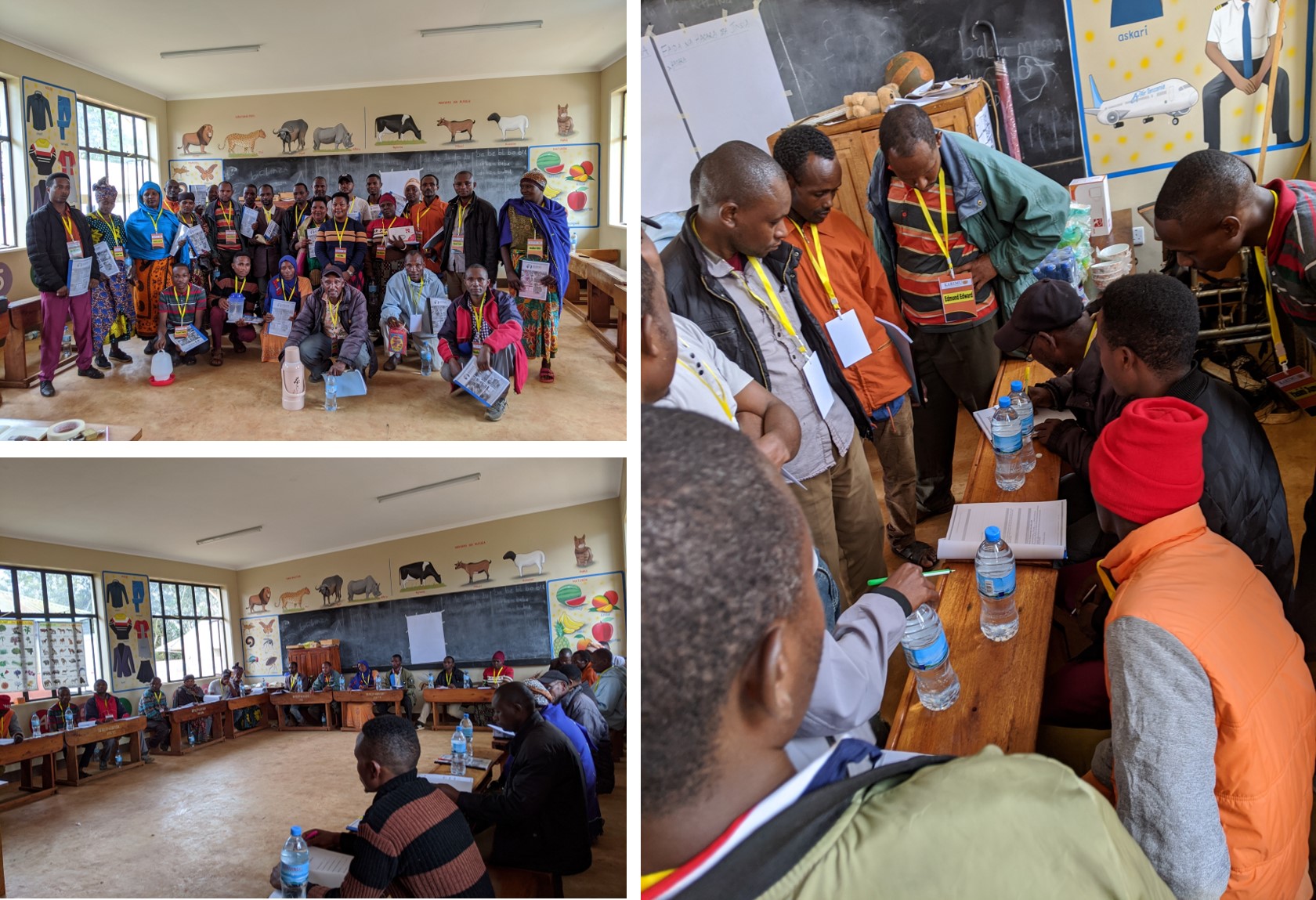
December 2022 update: For our inaugural class in Ayalagaya, of the 30 initial participants, 28 graduated. 29% of the graduates were young adults and 36% women. We had 90% average attendance overall. About 1/3rd of participants have opened new businesses and another 1/3rd have expanded pre-existing businesses. Their key learnings mirror the trainings:
-
Start small - e.g. a farmer started small chicken business with a business plan to grow
-
Keep detailed records - e.g. a farmer now tracks revenue and profit by item to see where he is making the best profit
-
Differentiate your product - e.g. a mandazi vendor has changed her recipe to differentiate hers from others
-
Expand to related areas - e.g. a butcher is now also selling meals to go (barbeque goat and ugali) with a higher profit margin
-
Perform market research - e.g. a man with a tilling and cultivating business discovered that more people in his local area have newer tractors. He has shifted focus to more rural areas where his service is more needed.
-
Care for your customers - e.g. a shop owner has changed how he interacts with his customers
We are very excited to see if we can achieve our objective of doubling their income 1 year post graduation.
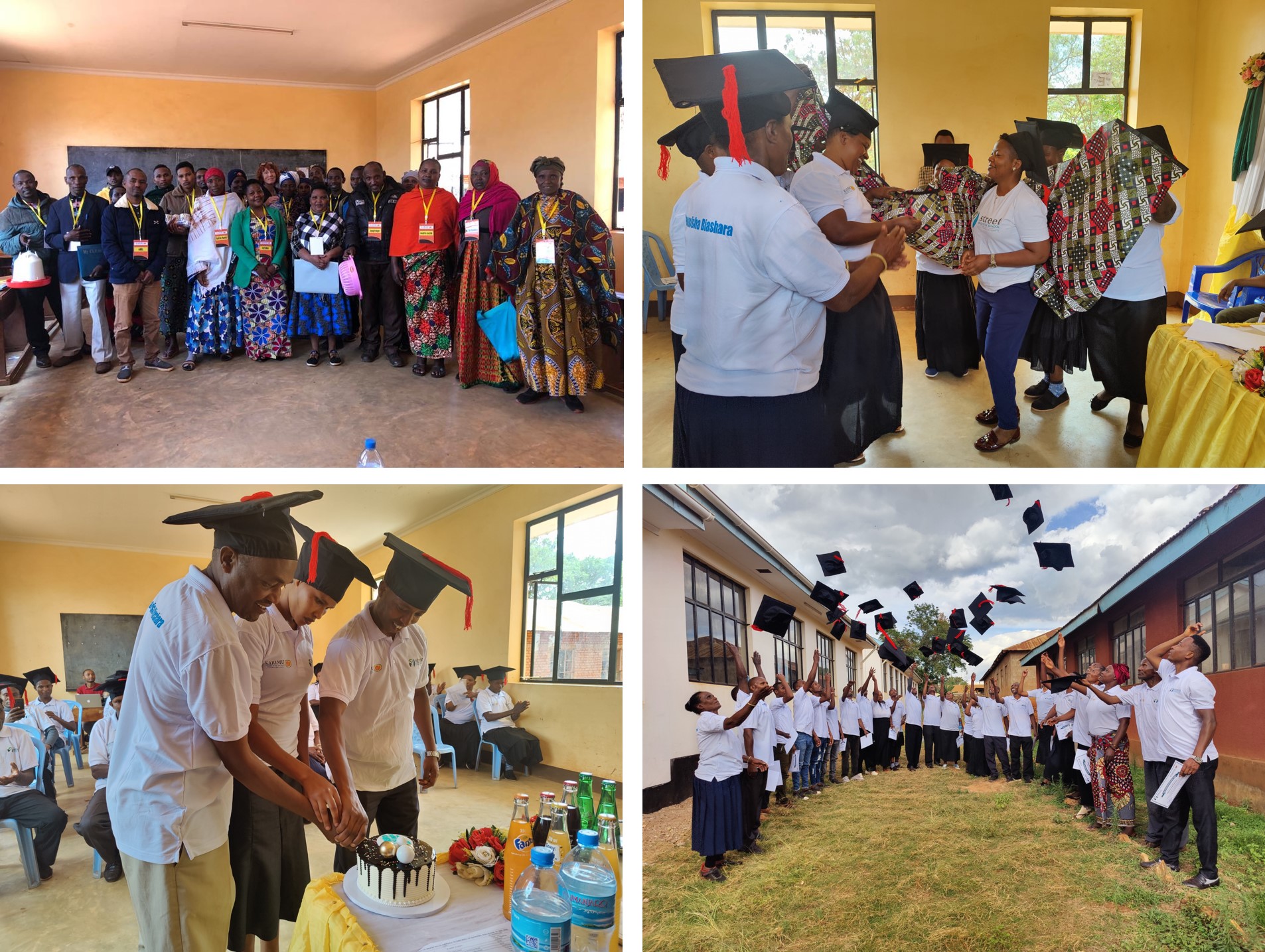
In Arri Ward, we had 98 people come to register for the first class, more than we can accommodate in a single class. We have held an orientation meeting to choose the day, time, and location of the classes and baseline coaching visits are starting in the new year.
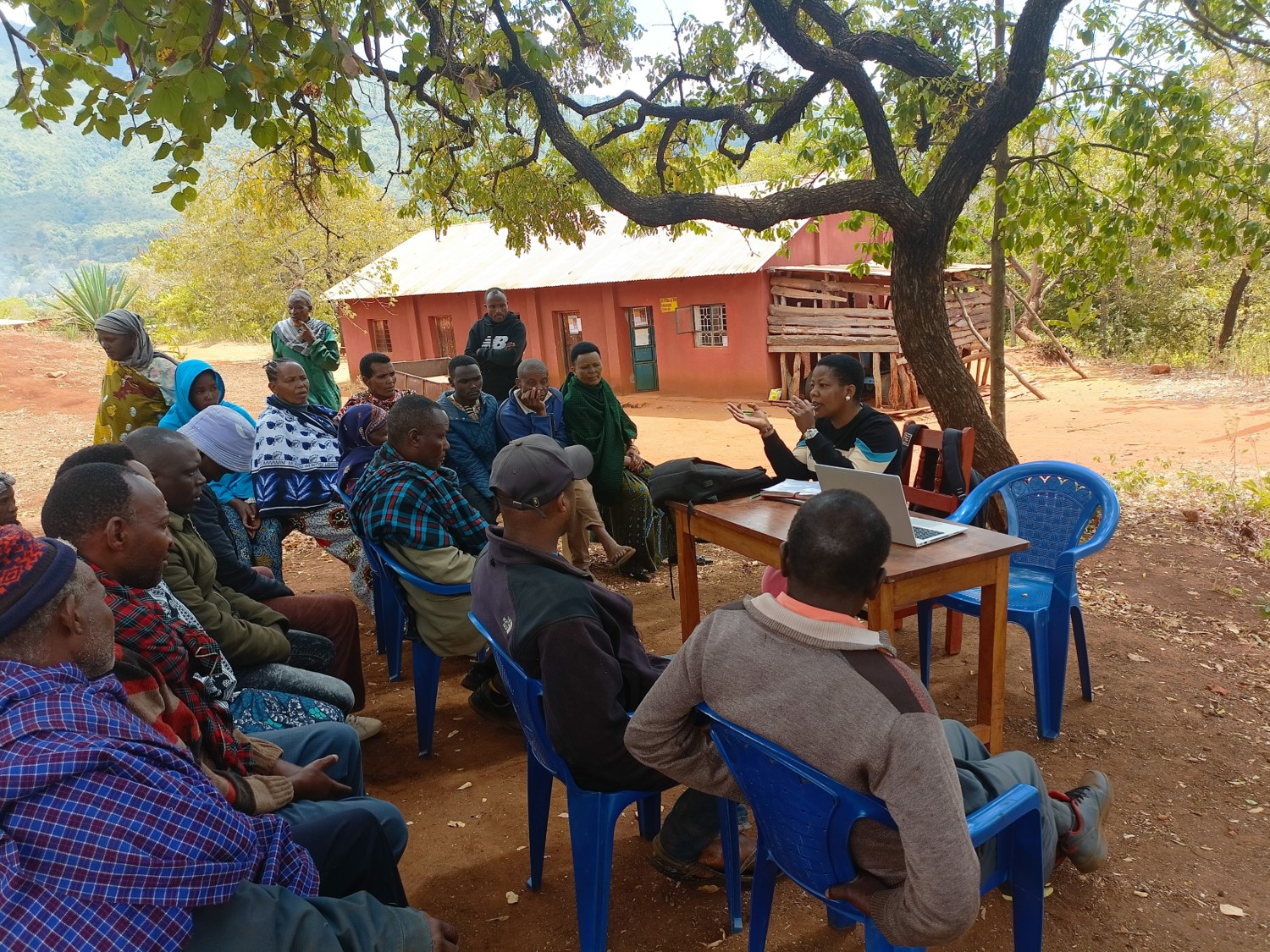
Update June 2023: After losing one of our lead coaches to a great government job, we have hired two more staff to replace him. We are sending 3 staff to Street Business School to become lead coaches to accelerate our entrepreneurship program.
Amazingly, after analyzing the data from the post graduation survey we learned that the graduates from our 1st Entrepreneurship class in Ayalagaya Ward more than doubled their income by graduation - actually 121% ! We have some video clips of some of the graduates talking about the class and what it has meant to them. Check them out on our YouTube channel:
We finally were able to start the 1st entrepreneurship class in Arri ward in June. After a rocky start with poor attendance we dropped some participants and added others and hope that we will be as successful in Arri as we were in Ayalagaya.
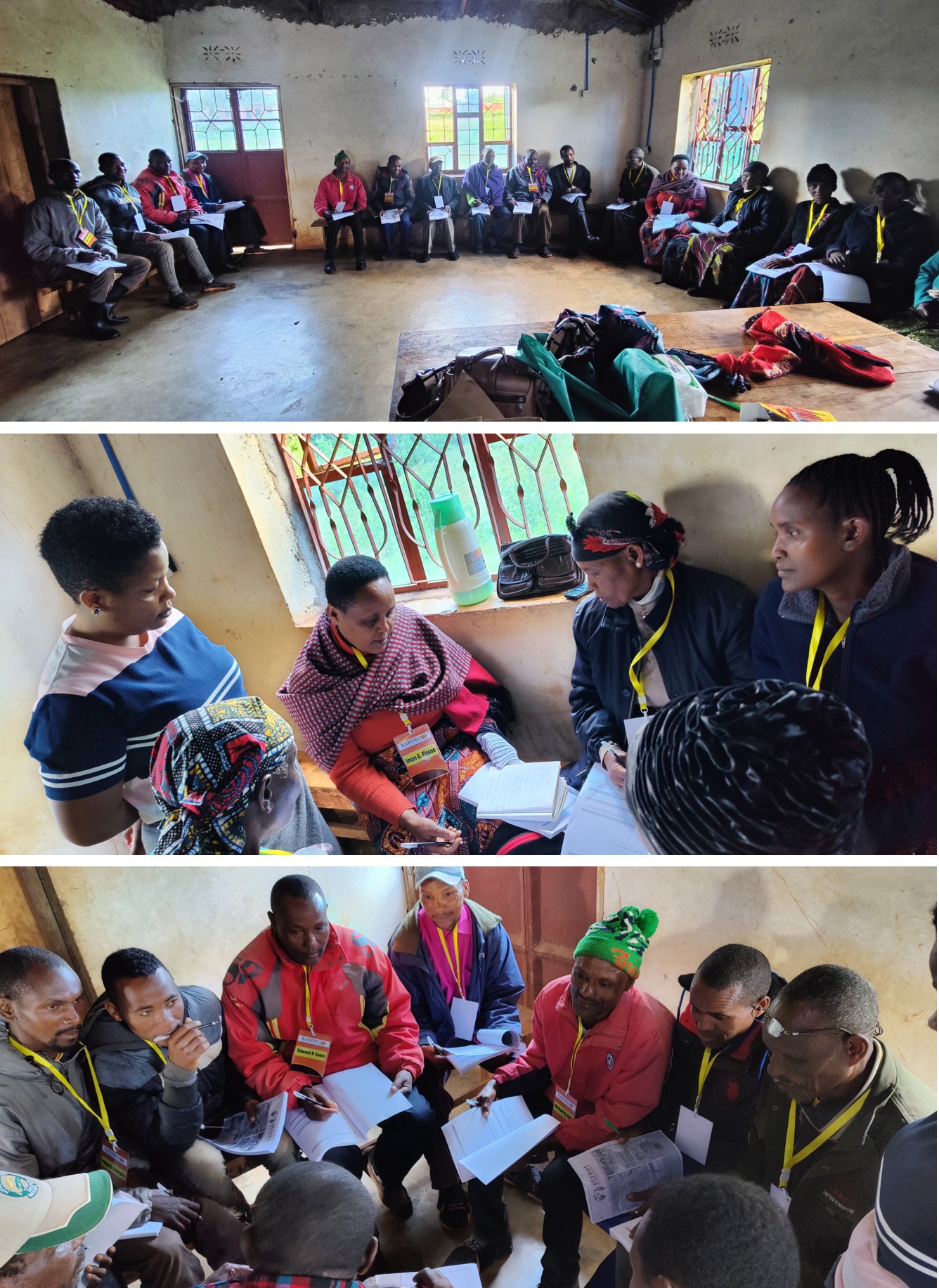
Dec 2023 update: Our first class in Arri graduated in December. We started with 28 students, but quickly lost 6 immediately. We replaced them with other students getting back to 27 participants, but still lost 4 more and only graduated 22. We believe the lower graduation rate is due to several factors:
-
Realization that no loans would be given (even though we told them at registration and orientation)
-
Lost enthusiasm due to long time between registration and start of class
At the mid-training coaching visit we found that participants were able to identify reasons why they had failed in prior business attempts e.g.
-
Some do not differentiate what items they sell, so they don’t know which items are profitable.
-
Many don’t keep records at all.
-
Many do not separate personal expenses from business expenses so have no way of knowing if their business is profitable.
-
Most members know their competitors, but didn’t know how to differentiate themselves, so they are thinking about this differently now.

These are a few images from the mid-training coaching visit for the first class in Arri ward. Our coaches conducted 1:1 coaching sessions with each student at their home or business.
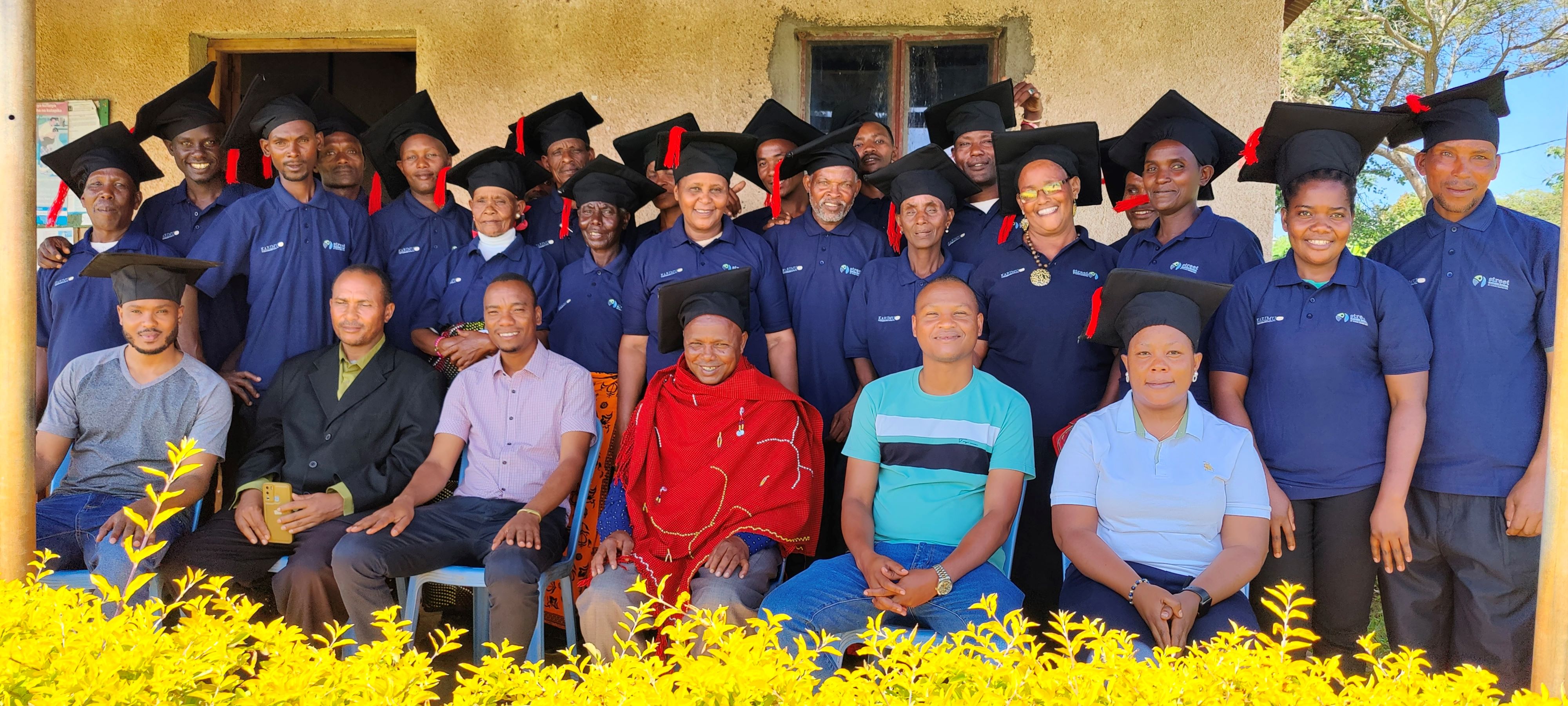
Participants really valued the training including
-
Learning from peer interactions and discussions
-
Understanding how to keep records and evaluate profitability
-
Being more serious about their collecting payments at time of service/purchase
-
Learning how to differentiate themselves from competitors
-
Encouragement to start small and grow
The second class in Arri started in late August with 26 participants.


June 2024 Update:
In May we graduated our third class, the second from Arri ward, with 20 graduates. Median income for the class increased 75% from Tsh 86000 to Tsh 150500 (~$59), however, total income across all participants only increased by 34%, less than prior classes. Nevertheless, the graduates reported learning:
-
The value of starting small
-
The importance of record keeping and understanding expenses, revenue, and profit
-
Adding differentiation to their business
-
Understanding clients and how to attract more and retain existing ones
-
How to expand by looking for new markets
-
New ideas for generating capital


We also began training our 4th class, this one back in Ayalagaya with 32 students.
Dec 2024 Update: We graduated 30 new entrepreneurs from cohort 4 (out of 32 originally registered) in Ayalagaya representing a 94% success rate. All 30 members had operational businesses by the end of training! Even in the short span of the class members saw an average increase in income of 46% with an increased median income of 65%. Prior to the training:
-
Many participants with existing businesses had started them due to access to loans or because they copied peers, rather than based on informed decisions.
-
None of the participants had conducted market research before starting their businesses. (60% of participants with existing businesses expressed that they would have chosen different ventures if they had conducted market research initially!)
-
Few participants kept proper records, and most struggled to differentiate between revenue, profit, and loan obligations.
-
Many businesses relied on funds from other sources due to unclear financial discipline, which led to unsustainable operations.
By the end of the training, all graduates demonstrated the ability to:
-
Utilize market research to identify business opportunities.
-
Understand business expenses and differentiate business revenue from profit.
-
Track and manage loans, including repayment and unpaid balances from the business cycles.
-
Calculate and monitor profit margins accurately.
-
Develop short and long term business plans.
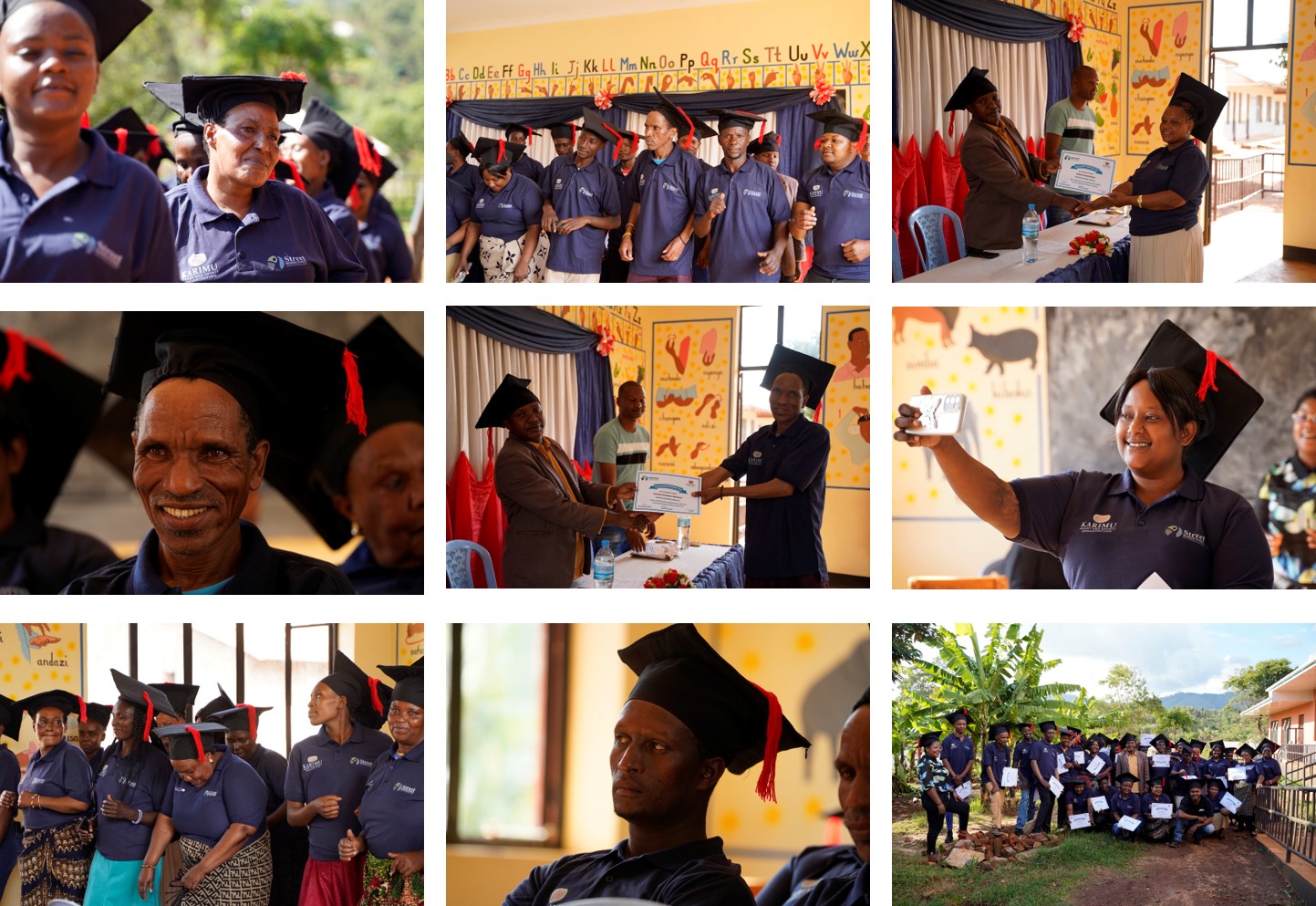
Aug 2025 Update: We graduated another 7 cohorts so far this year. We switched to a village-centric approach so we are running more classes in parallel. We have been able to scale up the training as we are fortunate to be able to hire contractors who are Street Business School certified Leach Coaches. Using a village-centric approach has also increased interest in forming new savings groups from within classes and they are geographically near each other and develop more familiarity and trust of one another throughout the program.
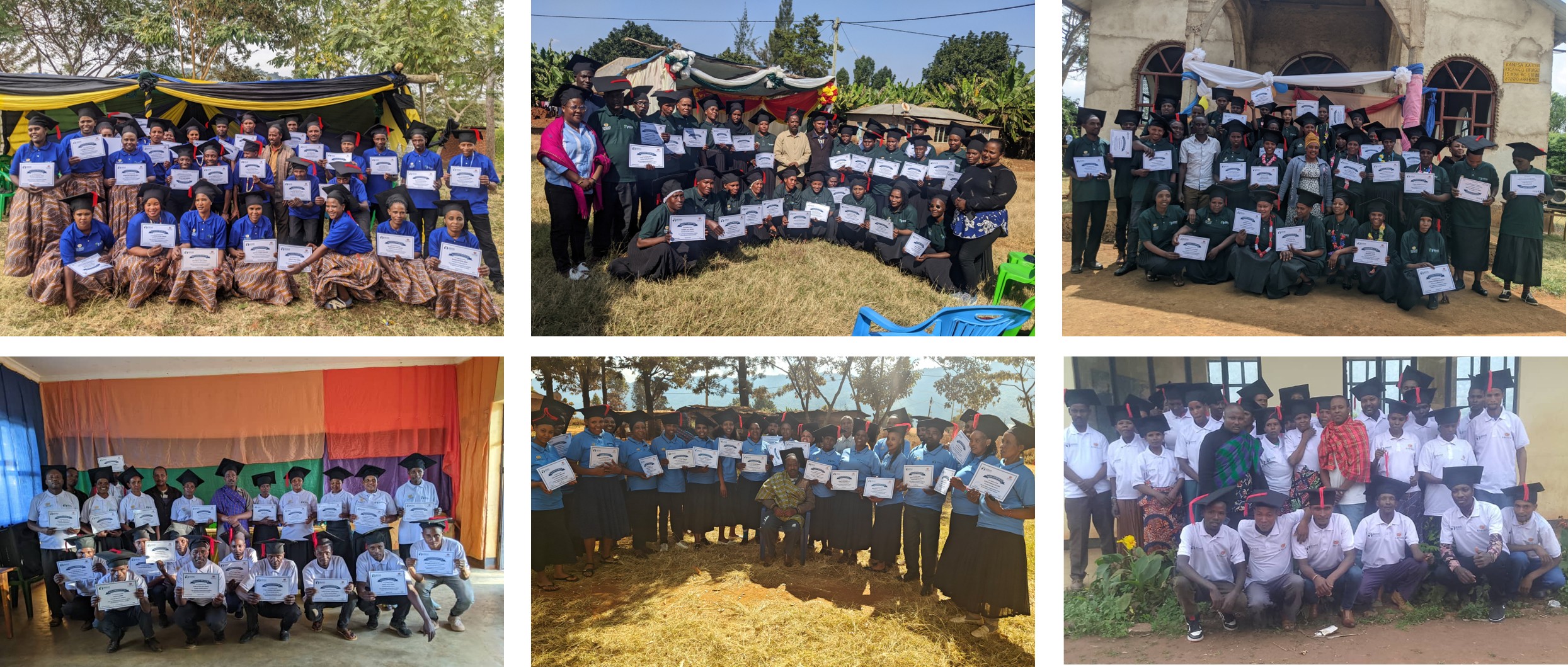
December 2025 Update: We graduated another cohort in the last quarter bringing our total 2025 graduates to 203! We also began 5 new classes for 172 participants.
Our key goals for the project are to
-
Train 25% of households in entrepreneurship skills (a multi-year project) so that skills can be learned through local mentorship.
-
Graduate at least 25% of participants who are young adults (under 35) providing local career opportunities
-
Replicate SBS impact such that
-
80% of entrepreneurship graduates have own 1 or more businesses 1 year after graduation
-
Double annual income 1 year after graduation
As of December 2025 we have graduated 303 entrepreneurs.
-
201 from Arri touching 6.3% of households
-
102 from Ayalagaya touching 4.1% of households
Of our graduates and those in training 44% are young adults (under 35) and 55% are women. Across the three classes that are 1 year post graduation 86% have a business and income has increased by 192%.
.
More information about the program can be found in our Entrepreneurship Program document. We see this project dovetailing with our other Financial Services Program projects and with income projects currently being defined.
Benefits:
-
Increased family income
-
Retention of youth in the local area
Cost:
-
Karimu cost - $93,000
-
Community - Their businesses expenses


